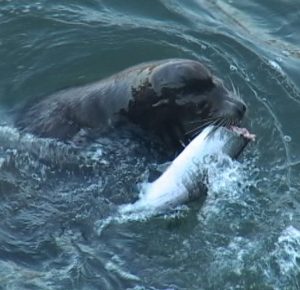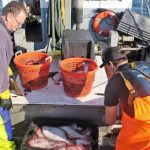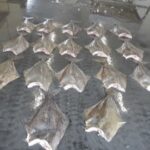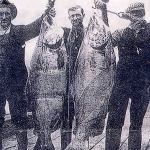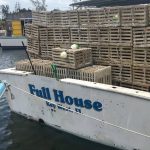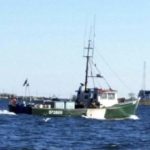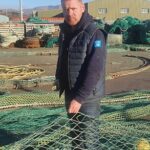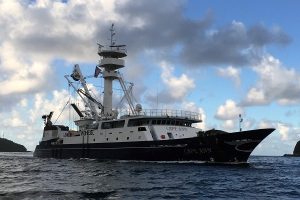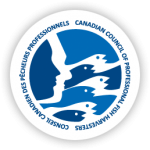Tag Archives: Lorraine Loomis
Dungeness are WA’s most lucrative seafood, but we know little about them
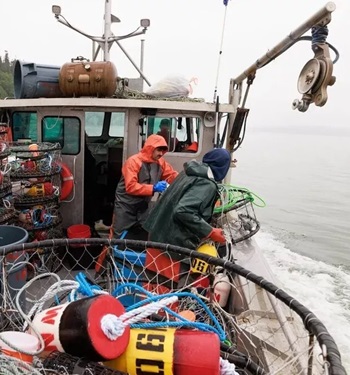 Dom Wilbur slammed the knife into the frozen squid, sending shattered ice flying. Nearby stacks of crab pots teetered as his dad throttled the boat past the Skagit River delta and carved deeper into the fog. As the salty mist enveloped the deck, Dom Wilbur and his cousin Alex Stewart heaved empty pots and stuffed bait traps with the squid and chum salmon. “Go ahead, boys,” J.J. Wilbur called out from the rear cab window. Dom Wilbur and Stewart tossed the buoy off the side of the boat, followed by the splash of a 65-pound pot. They would repeat this dance dozens of times on a late June afternoon and haul up a bounty of Dungeness before sunset. more, >>CLICK TO READ<< 09:23
Dom Wilbur slammed the knife into the frozen squid, sending shattered ice flying. Nearby stacks of crab pots teetered as his dad throttled the boat past the Skagit River delta and carved deeper into the fog. As the salty mist enveloped the deck, Dom Wilbur and his cousin Alex Stewart heaved empty pots and stuffed bait traps with the squid and chum salmon. “Go ahead, boys,” J.J. Wilbur called out from the rear cab window. Dom Wilbur and Stewart tossed the buoy off the side of the boat, followed by the splash of a 65-pound pot. They would repeat this dance dozens of times on a late June afternoon and haul up a bounty of Dungeness before sunset. more, >>CLICK TO READ<< 09:23
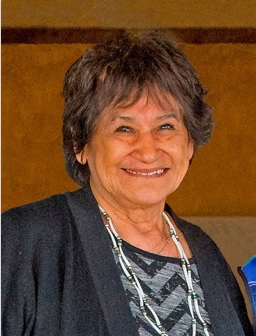
Tribal fisheries advocate Lorraine Loomis of the Swinomish Indian Tribal Community has passed away
Loomis spent the last about 40 years serving the Northwest Indian Fisheries Commission, most recently as chairperson. She began her career in fisheries working in fish processing in 1970, and then became fisheries manager for her home tribe following the 1974 Boldt decision that reaffirmed tribes’ treaty-protected fishing rights.,, Chairperson of the Northwest Indian Fisheries Commission is the lead negotiator for tribes in the North of Falcon salmon fisheries planning process with the state of Washington. Loomis was also involved in developing the Pacific Salmon Treaty between the U.S. and Canada, served on the Fraser River Panel that manages sockeye and pink salmon, and encouraged local restoration and research for salmon and shellfish. >click to read< 09:13






